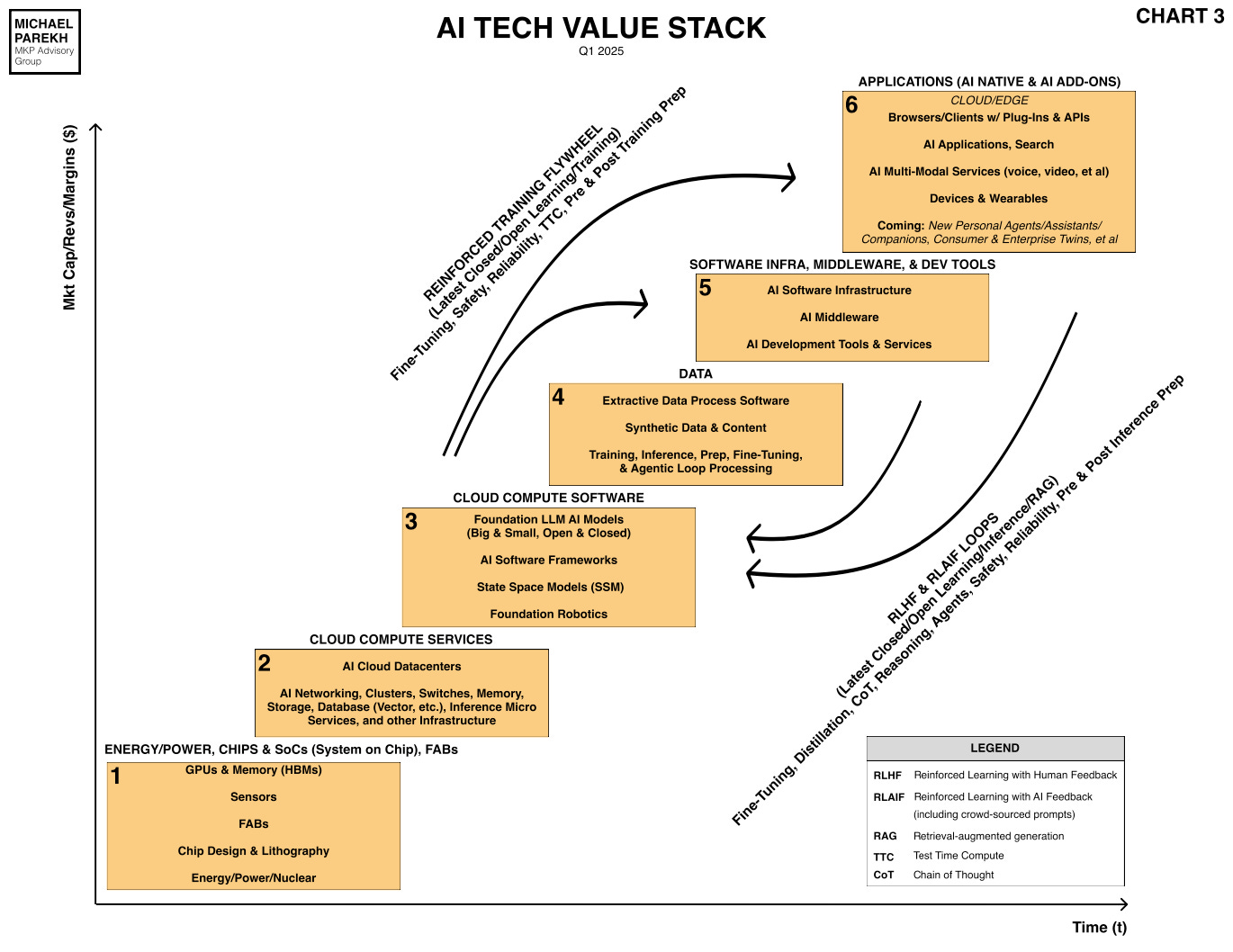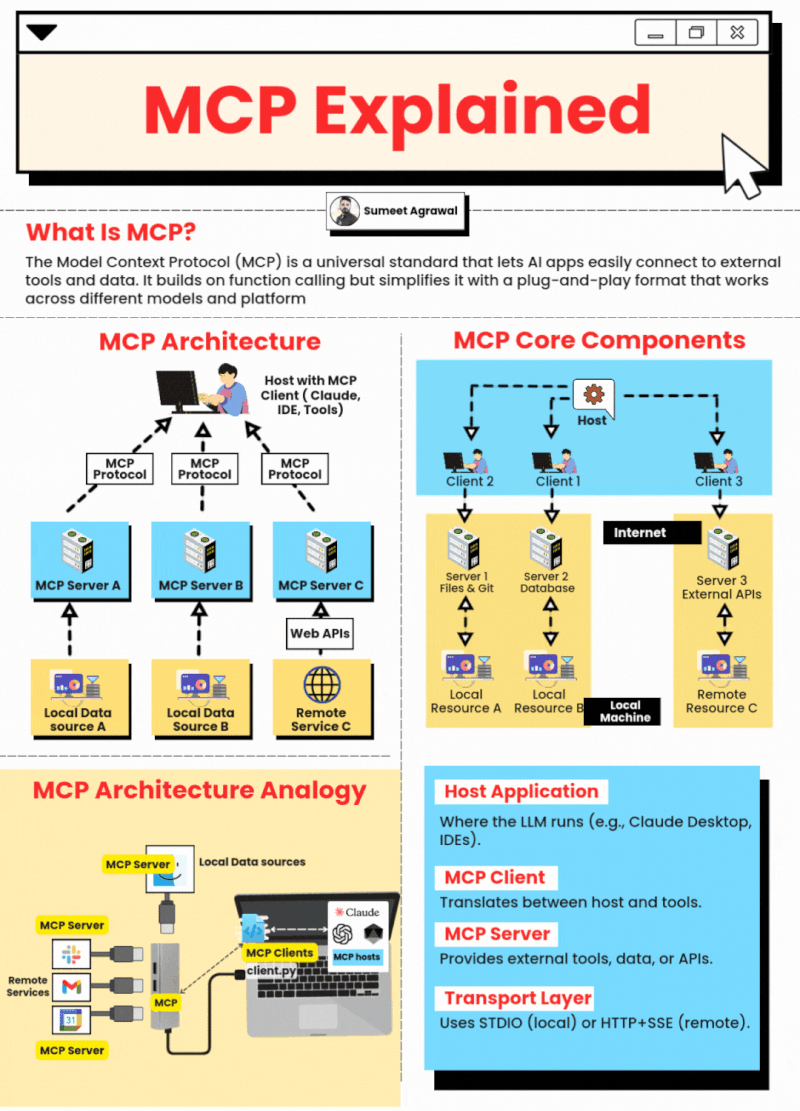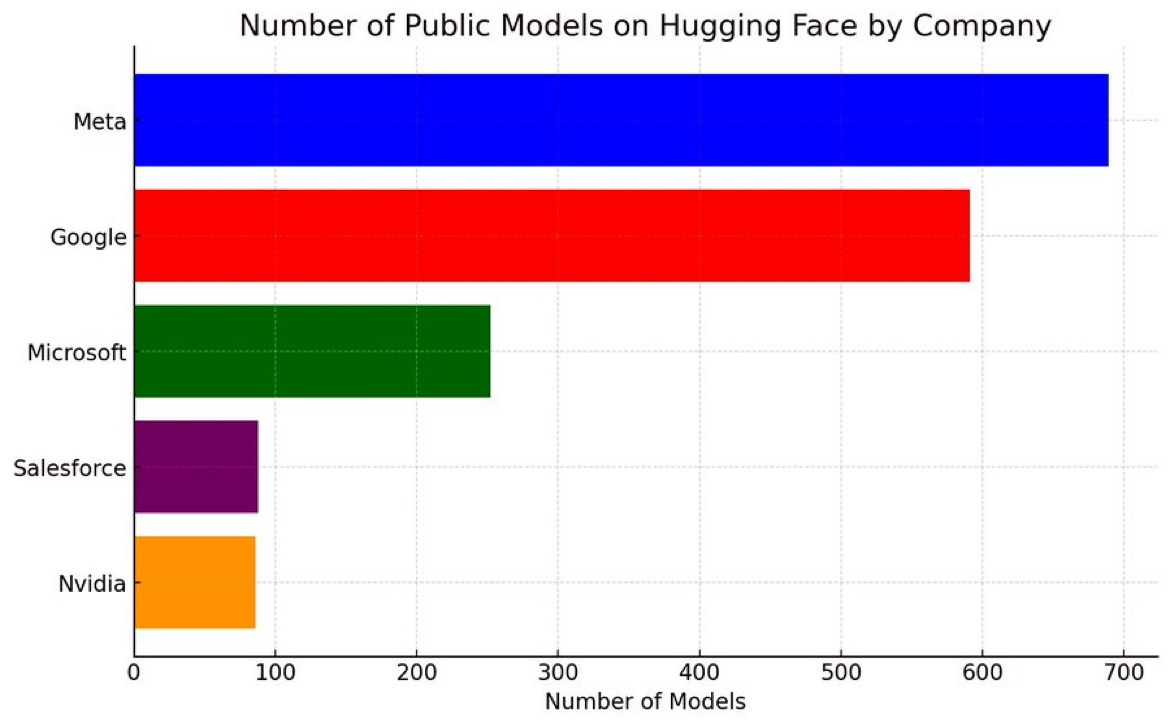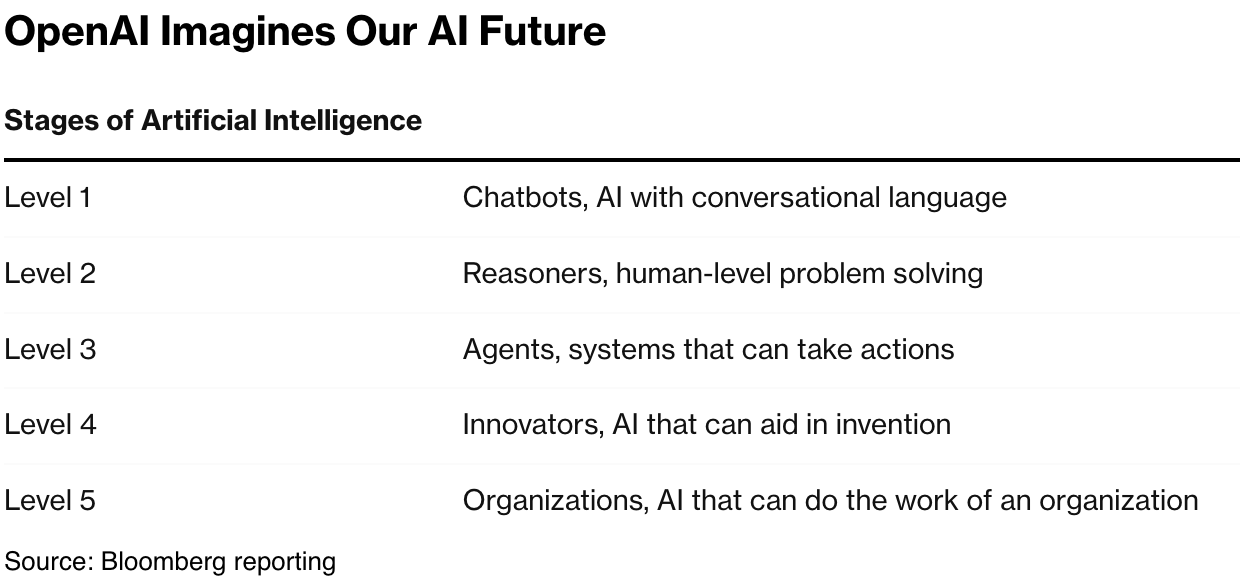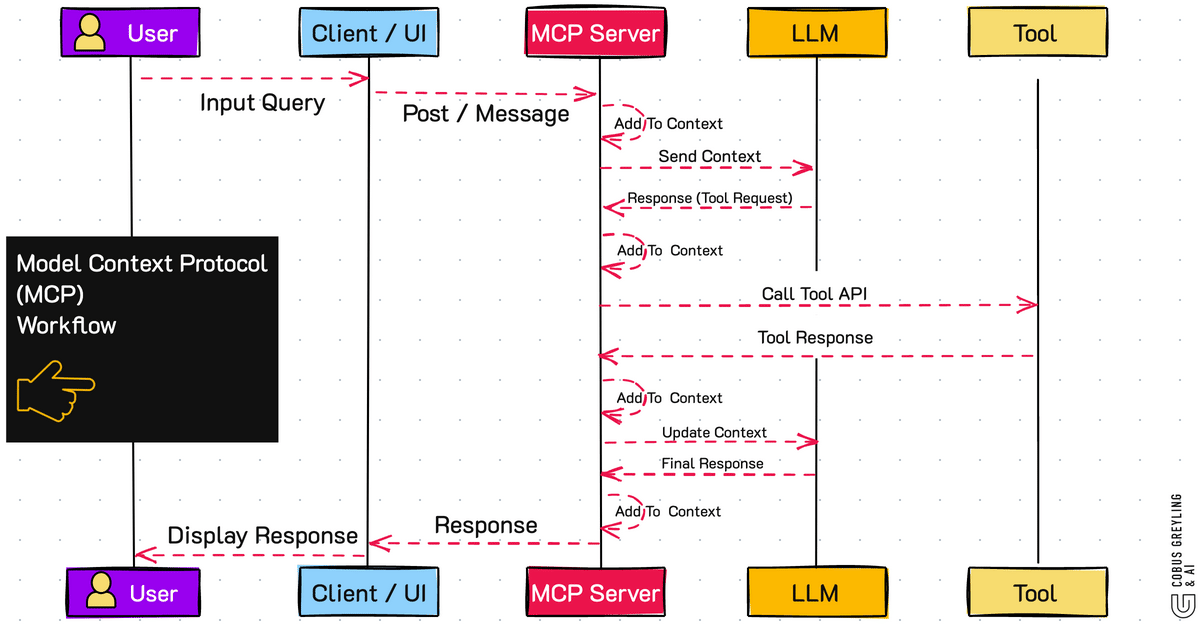
AI: Importance of AI software 'glue' tools like MCP. RTZ #693
Much of the debate in this AI Tech Wave has been on the pros and cons of ‘Open vs Close’ source LLM AIs and related technologies. Especially on the impact of open source AI software companies like Meta in the US, and DeepSeek out of China.
I’ve argued that both are important in tech waves past, current and future. And the distinctions become immaterial with time, as both can be commercialized into big technology companies over time.
The other area that is sometimes overlooked are technology protocols that are developed by a a number of software companies, and then go on to become core ‘software glue’ that benefits both the companies and developers/customers around the world. It’s software that typically helps all stakeholders ‘glue’ their software, applications and services across Boxes 3 through 6 below in the AI Tech Stack:
There is one such software protocol, called ‘Model Context Protocol’, or MCP, originally put forth by LLM AI leader Anthropic, that is currently ready for its global close up. Let’s unpack.
Axios describes this new protocol well in “Hot new protocol glues together AI and apps”:
“AI developers are embracing a new technical standard that’s speeding up chatbots’ capacity to access the rest of the software we use every day.”
“Why it matters: The faster AI can start using the services and programs that shape our lives and work, the quicker it can save us time and money — and cause us new headaches.”
“How it works: Anthropic’s Model Context Protocol is a technical definition that standardizes a relatively simple method developers can use to wire up today’s AI models and bots to most other programs and data sources.”
-
“MCP lets users with modest technical skills give conversational bots — like ChatGPT and Claude — the keys to their other digital tools. (If you’re comfortable running software locally in a terminal window, you can probably handle it.)”
-
“It’s supported by many of AI’s biggest players, including OpenAI, Google and Microsoft.”
-
“Developers have already built and shared hundreds of programs — called MCP servers — that developers and users can plug in.”
Here’s why this stuff is useful this time around:
“What they’re saying: “MCP is the first time I can say: here’s a (relatively) easy way to connect your organization’s tools and knowledge into an AI chat app and see what you learn,” digital design guru Matt Webb wrote on his blog.”
“Zoom out: AI vendors have made big promises about a future in which autonomous AI agents will get things done for us with minimal supervision.”
“But few of these agents are working right now to handle everyday work, outside of a small number of very specific technical environments.”
MCP solves a critical need today, and can be productized further by companies large and small:
“Zoom in: MCP offers a fast-and-dirty way to bridge the world of generative AI models with the web and mobile apps that most of us rely on today to do real work.”
-
“If you want ChatGPT to access your data in Notion or Evernote or some similar app, or you’d like Claude to access the files on your computer or in your Dropbox, MCP is an answer.”
“Reality check: Authentication, security and privacy are obvious trouble spots any time you give one system access to another. Right now MCP is largely a “proceed at your own risk” zone.”
Again, technologies like MCP are capabilities that can then be extended to do far more useful integration tasks, over longer periods of time:
“Between the lines: A protocol is just a description of an agreed method for one system to access another without knowing every detail of how the other one works.”
-
“Both the internet and the web are built on a foundation of protocols, which allowed them to connect computers and later phones made by different firms using different operating systems.”
-
“MCP’s status as an open protocol gives both model-makers and app-builders confidence that they can use it without getting locked into a particular vendor’s tool set.”
-
“The protocol approach has prevailed in the past, advocates say, because it’s fair, it’s pro-competitive and it produces healthy software ecosystems full of choices for users.”
-
“Google recently unveiled its own open protocol, Agent2Agent (A2A), for connecting one AI agent to another.”
MCP has a role to play for the developers and users of most of the LLM AI today, open or closed:
Most of the time these technologies are not ‘money makers’ in themselves, but can be a pathway for many types of monetization by companies large and small:
“Yes, but: It’s tough to make money directly by creating or adopting an open protocol.”
-
“Microsoft veteran Steven Sinofsky identifies MCP as the latest form of “middleware,” a category of software tool — like web browsers — that operates across platforms and often thrives during industrywide platform shifts like the rush into AI.”
-
“Middleware, Sinofsky argues, “never quite lives up to [its] promises in practice.”
Again, protocols like MCP are areas that can be built upon for greater UI/UX conveniences:
“Our thought bubble: Websites and apps are designed for people to use, so they have “human interfaces” like buttons, search features and dialogue boxes. MCP provides a way for AI to bypass that layer.”
-
“We want AI agents to “do things for us,” and we imagine them as substitute versions of ourselves going off and arranging travel or gathering research.”
-
“But it’s deeply inefficient for an AI bot to “talk” to an app or website as if it were a person.”
-
“The bot is code, the website is code, and they don’t need to keep translating their work into human-ese to get things done.”
Much of the next steps to AGI like AI reasoning and AI Agents, are likely accelerated by tools like MCP.
A great means to an end. We’ll need a lot more protocols like MCP to get us along the roadmap above in this AI Tech Wave. Stay tuned.
(NOTE: The discussions here are for information purposes only, and not meant as investment advice at any time. Thanks for joining us here)

